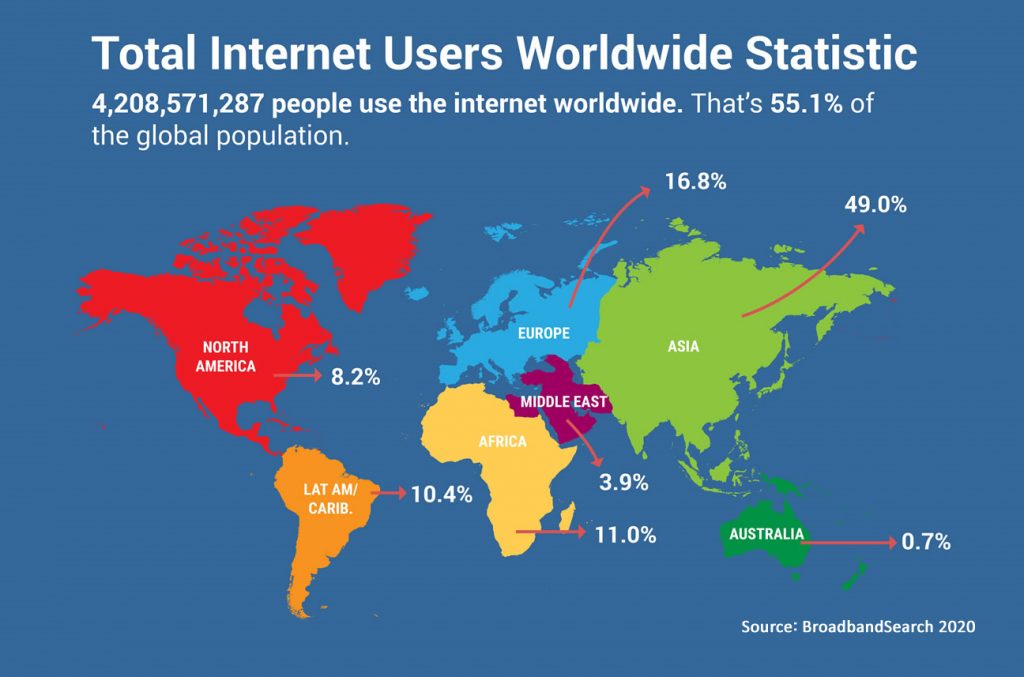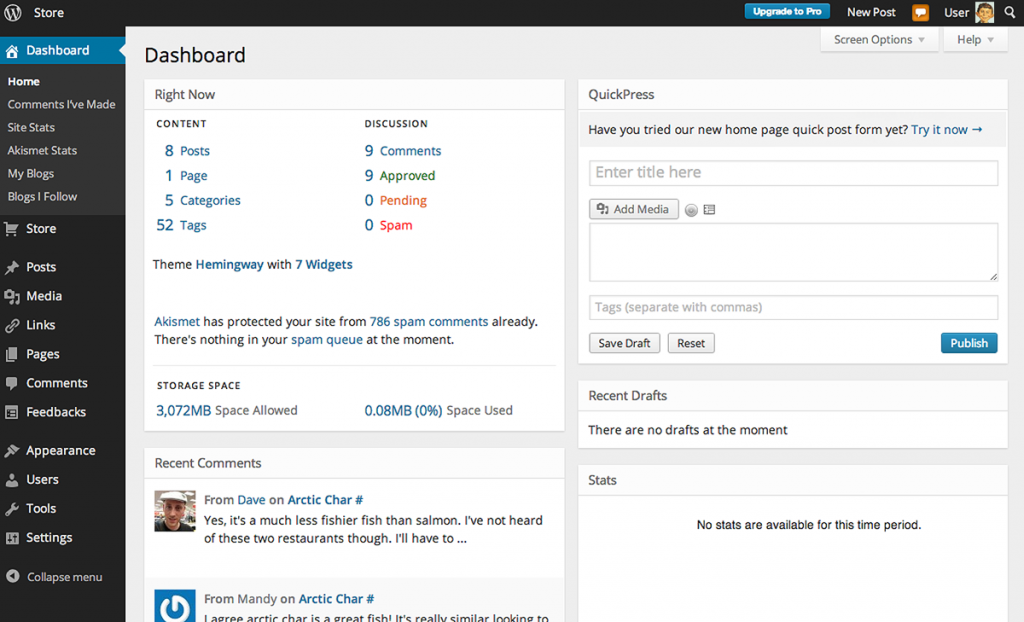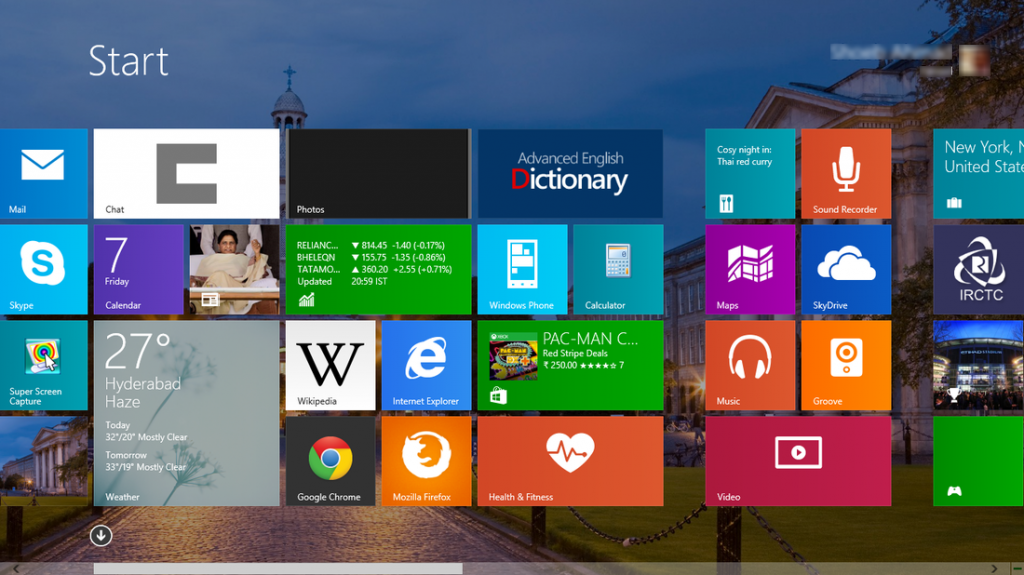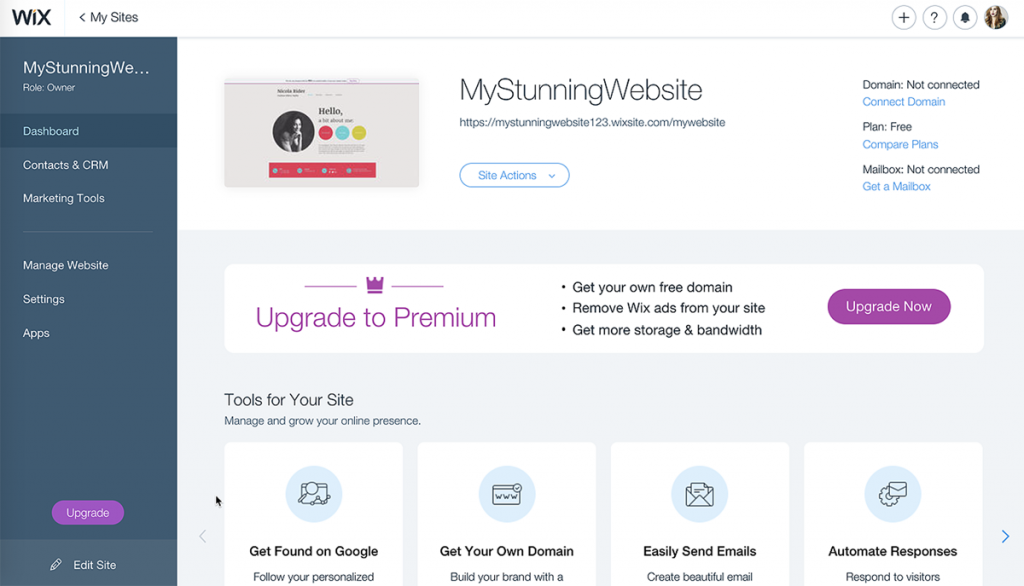Not long ago, having some online presence is good enough to make a company relevant. But nowadays, running a business in a world where people are usually online daily, having an ordinary website just won’t cut it anymore.
Most consumers first visit a company’s or service provider’s website before making a purchase. So, whatever prospective consumers will see or experience on a website will greatly influence their purchase decisions.
In this article about website builder software, you’ll learn about its top benefits, main features, related issues, and latest trends. As many people base their buying decisions on their online experience, your website’s appearance and functionality have become more important than ever.
What Is Website Builder Software?
People visit websites not only to check on a company’s product offerings but also do more than that. In fact, 81% of consumers first research online before making a purchase. And because of the critical role that websites must play, website builder software has now become an essential tool that any business should have.
Website builder tools are online solutions for building websites easily, quickly, and without any technical hassle. These innovative platforms offer a better option compared to hiring professional web designers. Aside from eliminating the need for coding skills, these tools are more affordable and can practically be used by anyone with minimum computer knowledge.
There are two major categories of website builder solutions. First are offline website builder solutions that can run on a computer to build and publish web pages via a hosting service. These are considered more as website design applications than website builders.
Next are online proprietary programs that web hosting companies offer. These can be used to create private websites for various purposes such as for ecommerce, posting blogs, etc.

More than half of the world’s total population already uses the internet, and these figures are expected to further increase every year.
List of Best Website Builder Software
Having a working knowledge of your website’s primary purpose will help a lot in building your own business site. Think of it as a virtual marketing or sales rep that will do the nitty-gritty things to help you market and sell your products and services.
Once you know the main use of your website, the next move is to choose the website builder that you’ll use. In this regard, check out today’s top expert-selected and customer-preferred website builder systems:
- WordPress. One of the most popular website builder solutions, this website builder can be used virtually for any business or personal purpose, be it for building online stores and news sites or personal blogs. Controlling over 35% of all existing websites as of early 2020, WordPress offers four types of user plans, one of which is a free plan, while the paid plans start at $4 per month.
- Wix. This is a leading cloud-based website builder that allows average, non-technical people to easily build professional websites for both personal and business uses. Wix is known for its ease-of-use and offers numerous design possibilities and functional features, including an intuitive drag-and-drop editor. It is offered for free with basic features, while its premium pricing plans start at $4.50 per month.
- Weebly. Another popular online drag-and-drop website builder, Weebly allows users to build unique websites and online stores. The platform also has a mobile app for creating and publishing websites, even when on the go. This site builder offers four SMB and enterprise pricing plans for users to choose from, starting at $8 per month.
- Joomla!. This is a free, open-source website builder packed with a content management system that both novice and expert web developers can use. It is user-friendly and highly flexible. Written in PHP, it uses Object-Oriented Programming methods to simplify digital publishing and team collaboration. This is a totally free platform, with considerable development support from Joomla! user and developer communities worldwide.
- GoDaddy. This is an online website publishing tool made by the web hosting giant. It allows users to create and publish their own websites on their own. The builder comes in three versions–GoCentral, Online Store, and WordPress builder. It offers a free trial and four paid plans starting at $281.99 per month.
- Strikingly. Another widely-used website builder tool, Strikingly is known for its top-tier ease-of-use, modern style, and simplicity. It is also optimized for ecommerce and customer engagement. Features include a built-in HTTPS, sign-up and contact forms, analytics, blog, etc. Paid plans start at $8 per month.
- Mobirise. This website builder for creating highly responsive, attractive websites that look awesome on any mobile device and desktops. This free solution allows users to mobile-optimized websites both offline and online. Mobirise premium Website Builder Kit costs $149, which includes over 2,500 blocks, 77 themes, etc.
- openElement. This free, Chromium-powered website builder has an intuitive interface and responsive design, with all elements editable. On top of this, openElement offers a WYSIWYG editor, SEO, multilingual websites, databases, HTML5, and CSS3. Paid plans are quote-based.
- TemplateToaster. This is an offline, easy-to-use site builder and CMS for Windows. It allows users to build their own website using any CMS such as Magento, WordPress, Drupal, etc. Aside from an unlimited free product trial offer, TemplateToaster premium plans start at $49 (one-time activation key).
- Simbla. A multi-function platform, Simbla is a website builder, online database, and SaaS app builder in one. Its key features include a responsive drag-and-drop builder and widgets, parse JavaScript library, Bootstrap 3, and HTML5. It offers a free-forever plan, while paid subscription start at $6 per month.

The majority of today’s websites are built using WordPress, indicating that its features and tools cater to the preferences of most individual users and organizations worldwide.
Types of Website Builder Software
Your business website is your main gateway for connecting with your customers in today’s digital world. Aside from ensuring that it is appealing enough to attract prospects, your website should also have the relevant content and features to convert your visitors into paying customers.
Here are the major types of website builder software:
HTML editors
The essential building block of any web page is HTML, and it’s no surprise that the first websites are made using HTML editors. Until now, some die-hard programs still use these classic website builders. Having HTML knowledge remains an essential skill that can save you time and cost when editing today’s modern websites.
Examples: HTML-Kit, Notepad++, and CoffeeCup HTML Editor.
Desktop WYSIWYG software
What you see is what you get (WYSIWYG) website builders allow users to make web pages as if you’re using a word processor. What’s more, you can quickly integrate images, tables, and other elements, without the need to revise the underlying HTML code.
Examples: Serif WebPlus, NetObjects Fusion, and CoffeeCup Visual Site Designer.
Online website building software
Using this type of website builder tool follows almost similar rules used in WYSIWYG applications. The difference is that you can only use it when you’re online. You also won’t need to install anything.
Examples: HostGator, SquareSpace, and Moonfruit.
Content management systems
The most common type of website builder platform nowadays is a content management system. A CMS allows to easily and quickly design and add content to a website. It also offers a wide array of features and tools that support practically every requirement of any modern-day business such as eCommerce, social networking, blogging, news, etc.
Examples: WordPress, Wix, and Weebly.
Main Features of Website Builder Software
Gone are the days when you need to hire web designers to build a website for your business. Now, nearly anyone can create a website on his/her own. Here are the common features of website builder software:
- Useful business tools. Pre-built design elements are already a staple among today’s roster of website builders. Most vendors are coming up with new and innovative tools that can address even the most specific needs of business users. And this helps separate themselves from the competition.
- Visitor monitoring and statistics. Advanced builder solutions also for tracking website visitors and other important metrics, mostly for marketing purposes.
- Customizable elements and templates. Website builder solutions are programmed to remove the need to hire professional web designers. Thus, most are built with numerous design templates, themes, and tools to cater to various business requirements.
- Search engine optimization. Many platforms offer SEO tools to help make your website rank high in online searches, which can offer positive business outcomes.
- Anywhere, anytime management. Today’s online website builders allow you to build and edit your website from practically any computing device with an internet connection, without the need to download any additional software.
- Shopping cart. Many website builder platforms also offer online store features. These include integration with payment gateways, and inventory management, among others.
- Point and click editing. This functionality virtually makes website building almost the same as writing an email, with some slight differences.
Top Benefits of Website Builder Software
Aside from being able to build a website on your own, website builder solutions also offer a wide array of benefits. Some of these are:
Plug and play functionality
By using plugins, you can include various functional features like online forms, image galleries, knowledgebase, etc. These plugins remove the need for any coding and can be easily installed on any website builder.
No coding skills required
The most important advantage that website builder solutions provide is the removal of any coding requirement. Everything, from scripts to HTML codes, is already pre-built inside the builder solution. You only need some time to orient yourself on how to use them.
Reduced cost
The emergence of website builders signaled the removal of a web designer or programmer from the website creation equation. You can do the website building on your own or ask your staff to do it.
Build professional websites on your own
You only need some fundamental knowledge about web design to build an attractive website. With a website builder software, it is now easy to make your website look and feel the way you want it to. This is crucial, especially for branding purposes.
Updated content
In the past, it is common for websites to be static and stale because of outdated content and design. This is because it takes time to have your web designer or administrator to help you with the updating tasks. Nowadays, you can do everything on your own, including the need to update your website content to ensure they’re fresh and relevant. This also covers the need for some redesigning in case you’re rebranding.
Create a user-friendly website
Websites that are difficult to use or aren’t attractive enough often drive away site visitors, who are mostly prospective customers. Aside from the need to make your site easy to use, you must also be able to clearly communicate what your site stands for. Besides, research shows that people decide in less than 5 seconds if they want to stay on a site or not.
Latest Trends
The global demand for websites will definitely grow as internet access continues to expand across the world. Along with this is the corresponding advancement of digital savviness and sophistication of consumers. These are among the compelling factors why vendors are coming up with innovative features and upgrades regularly:
Responsive site design
Nowadays, people use various devices to access the internet for both personal and business reasons. And with more than two-thirds of Americans using their mobile gadgets for online access, a business website should be optimized for any device to provide a great user experience.
The functional efficiency of semi-flat design
When Microsoft launched its Metro design starting with Windows 8, the design universe suddenly became flooded with flat design. Because of several bugs, changes were later made, and the resulting semi-flat design had proven to be a better alternative mainly due to its ease of use features. Today, many sites are using this design as it offers better page clarity to users.
Minimalism combined with micro-interactions
Another emerging trend is the use of minimalist design, which basically involves making a web page clean, using a few but highly functional elements to support easy site navigation. With an uncluttered site, micro-interactions are enabled, and results are achieved fast.

Microsoft initiated the flat design way back in the early 2010s, which was later improved to become today’s most widely-used style: the semi-flat design.
Potential Issues
Being the main portal to connect with customers and conduct business with the world at large, websites will remain susceptible to various issues. Here are some potential ones that business users of website builder solutions can possibly undergo:
Unwanted pop-up ads
Website builders that small businesses and freelancers use tend to allow external ads to appear, especially with free-to-use platforms. The only way to avoid these unwanted advertisements is by availing of a premium plan, but this could be difficult for small companies operating with low budgets.
Minimal control
While they offer ease-of-use and speed, using pre-made website templates means lesser control over various elements of a website. If you need a specific layout or theme, choose website builders that allow users to start from scratch.
Need to know style and aesthetics
Yes, there’s no need for coding and programming skills when you use website builder software. And this is among the main reasons for their market success. However, there still remains a need for some knowledge of web style and functionality. Besides, if everyone will just use the pre-built designs and themes without making some changes in the elements, most websites will virtually look the same, which will likely result in negative business outcomes.
How to Choose the Best Website Builder for Your Business
Your business needs a professional website, but you’re having problems trying to figure out where to start. Here are some of the key factors to consider:
- Know your budget. Before anything else, you must first determine how much you are willing to spend on your website.
- Identify your priorities and needs. Make a definitive shortlist of your requirements for setting up your own online business site.
- Examine the features and resources. Check also the set of resources and tools that a website builder offers before making a selection.
- Determine what and how many themes you’ll use. In most cases, designing your website starts with selecting a theme pre-built on the website builder.
- Test its ease of use. Removing the need for programming and coding skills doesn’t mean you can immediately go live with your new site. You must first try how it functions to know if adjustments should be made.
- Implement SEO protocols. You must observe SEO best practices to ensure your new site gets positive search results.
- Check the vendor’s support and reputation. Finally, it’s always best to choose a software provider that has a good reputation and solid customer service.

